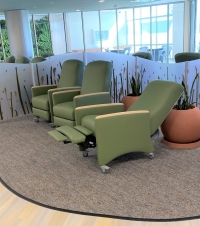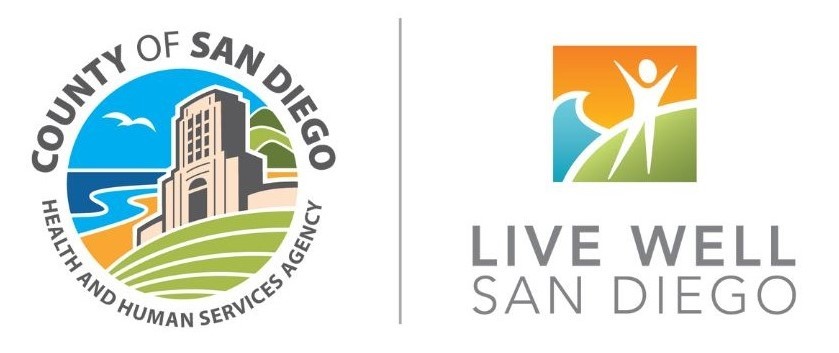All Services | Crisis Services
Crisis Stabilization Units

Crisis Stabilization Units, or CSUs, provide immediate mental health
support and treatment services in a therapeutic setting to people with
serious behavioral health needs who require urgent care beyond what an
outpatient clinical service can provide.
CSUs can help to deescalate a person’s level of distress, prevent or treat a behavioral health crisis, and reduce acute symptoms of a mental health condition. Additionally:
- Services are tailored to each person and are provided on a short-term basis, up to 24 hours, and include crisis intervention, mental health assessment, medication assistance, therapy, and peer support.
- CSUs are designed to be relaxing and quiet, with a calming environment to support mental wellness.
- Individuals may be admitted voluntarily or may be brought in on a Welfare & Institutions Code (WIC) 5150.
- The goal is to connect people to ongoing care and divert from higher levels of treatment.
Who We Serve
The County of San Diego offers crisis stabilization services to children and adults at various locations countywide, see section below for more detail. County CSUs generally serve individuals who are Medi-Cal eligible, uninsured, or very low income and who are experiencing a psychiatric emergency.
If you have any questions, contact your primary insurer or reach out directly to any of the CSU locations listed below.
Locations
The County of San Diego currently has six CSUs – five for adults and one for children and youth. In addition, there are two more adult CSUs that are planned to open soon: the Sharp CSU and the East Region CSU in early 2026. All CSUs can help to deescalate a person’s level of distress, prevent or treat a behavioral health crisis, and reduce acute symptoms of a mental health condition.
| Facility | Region & Neighborhood | Address & Phone |
|---|---|---|
| Children and Youth Crisis Stabilization
Unit (CYCSU) [formerly the ESU] Serves children and adolescents under 18 | Central, Hillcrest | 4309 Third Avenue San Diego, CA 92103 (619) 876-4502 |
| North
Coastal Crisis Stabilization Unit Serves adults 18+ | North Coastal, Vista | 524 W. Vista Way Vista, CA 92083 (760) 305-4900 |
| North
Coastal Live Well Health Center Crisis Stabilization
Unit Serves adults 18+ | North Coastal, Oceanside | 1701 Mission Avenue. Suite 130 Oceanside, CA 92058 (760) 305-4848 |
| Palomar
Crisis Stabilization Unit Serves adults 18+ | North Inland, Escondido | 2185 Citracado
Parkway Escondido, CA 92029 (760) 739-3012 |
| San Diego County Psychiatric Hospital
Emergency Psychiatric Unit Serves adults 18+ | North Central, Midway | 3853 Rosecrans
Street San Diego, CA 92110 (619) 692-8222 |
| Paradise
Valley Bayview Crisis Stabilization Unit Serves adults 18+ | South, West Chula Vista | 330 Moss
Street Chula Vista, CA 91911 (619) 585-4221 |
| Sharp Crisis Stabilization Unit | Coming early 2026 | |
| East Region Crisis Stabilization Unit | Coming early 2026 | |
Community Toolkit
Expand the library of outreach materials below for community use.
County News Center Features
- County and Sharp Chula Vista Partner to Expand Crisis Stabilization Unit Network (1/28/25)
- County Breaks Ground on East County Crisis Stabilization Unit (7/18/24)
- County Crisis Stabilization Units Here for You (7/17/24)
- Bayview Crisis Stabilization Unit Serves South Bay (2/27/23)
- County's Newest Crisis Stabilization Unit Opens in Oceanside (4/18/22)
- County Opens Free-Standing Crisis Stabilization Unit in North County (9/30/21)
- Helping Kids in Crisis (12/12/17)
-
What is a psychiatric emergency?
A behavioral health crisis or emergency, also known as a psychiatric emergency, is a situation in which a person’s thoughts, feelings, or behaviors may lead them to hurt themselves or others or put them at risk of being unable to care for themselves or function in a healthy manner. A person in crisis may experience feelings of hopelessness, helplessness, or a sense of a loss of control. These feelings may be initiated or worsened by substance use.
The following list includes some common signs that may be associated with a mental health or substance use-related crisis:
- Changes in mood or behaviors that cause concern
- Thoughts of self-harm or suicide
- Sudden changes to hygiene and self-care practices
- Unusual thoughts, sounds, or visions that cause fear or distress
- Sudden onset or increase of substance use
- Feeling helpless or hopeless
- Sense of loss or control over thoughts, feelings, emotions, or behaviors
If you think you or someone you know could be having a psychiatric emergency, call the Access and Crisis Line at 1-888-724-7240 to speak with a licensed, behavioral health professional. Calls are answered 24/7, are confidential, and always free. Translation is available in 200 languages. -
Do CSUs serve all ages?
In the County of San Diego there is one designated Children and Youth Crisis Stabilization Unit located in Hillcrest area which serves children and adolescents. All other County of San Diego CSUs serve adults ages 18 and over. Please see the table above for a list of all facilities and their populations served.
-
Who works at the CSUs?
CSUs are typically staffed with behavioral health professionals, such as clinicians and psychiatrists, as well as nurses, case managers, and peer support specialists.
-
What happens while I’m at the CSU?
Individuals admitted to a CSU will be assessed by staff to determine the most appropriate course of treatment – which can include medication, short-term counseling, observation, etc. An individual will stay as long as needed to stabilize but services are designed for a stay of up to 24 hours. Individuals will have an opportunity to meet with health professionals to learn more about what is causing the crisis and will be provided resources to follow up on after discharge.
-
What type of service connections might I receive upon discharge from the
CSU?
Depending on the needs of the individual, the CSU staff will refer them to behavioral health services and/or primary care services to most closely align with their ongoing treatment needs.
-
Is this a service for people experiencing homelessness?
CSU services are accessible to all people who are in crisis, whether housed or unsheltered, and includes connections to ongoing behavioral health care and housing services when appropriate.
-
Do I need to make an appointment to go to the CSU?
You will not need to make an appointment and can be assisted just by walking in.
-
What will happen after I am discharged from the CSU?
Once a person is feeling better and the immediate crisis has passed, they are linked to services that can meet their unique and ongoing needs. The goal of the CSU is to ensure clients stabilize and are linked to appropriate treatment services.
-
Do CSUs serve individuals from any region?
Yes, CSUs serve anyone in need of services regardless of where they live. There is no need to go to the CSU that is in the region where you live.
-
Can I bring my family member or friend to a CSU with me?
You can have a family member or friend bring you into the CSU but they will not be able to stay for the duration of the treatment.
-
What are the CSU hours of operation?
CSUs are open 24 hours a day, 7 days a week, 365 days a year.
-
Do law enforcement drop off people at CSUs?
Yes, law enforcement can drop off individuals experiencing a psychiatric crisis at the CSU. CSUs are designed to enable the smoothest transition possible from law enforcement engagement to care hand-off – this is less taxing on individuals, allows deputies to return quickly to the field, and provides a care plan leading to less recidivism.
-
Is there a cost for CSU services?
Yes, however, the cost of CSU services for individuals who qualify for Medi-Cal, are uninsured, or very low income are generally covered by the County. For individuals with private insurance, in most cases the CSU will bill your insurer. Contact your private insurance provider with coverage questions.
-
Who can I call to access services or support for an individual who is
experiencing homelessness but not a behavioral health crisis?
You can contact your local Homeless Outreach Team or 2-1-1.
-
Does the CSU offer services in languages other than English?
Yes, language interpreter services are available.
Not sure where to start?
Call or text 9-8-8 or dial 1-888-724-7240 to speak to someone who can help find the right service for you or someone you care about. Both numbers are operated 24 hours a day, 7 days a week with support available in over 200 languages. For more information visit Get Help Now or All Services. If you are experiencing an emergency, please call 9-1-1.





